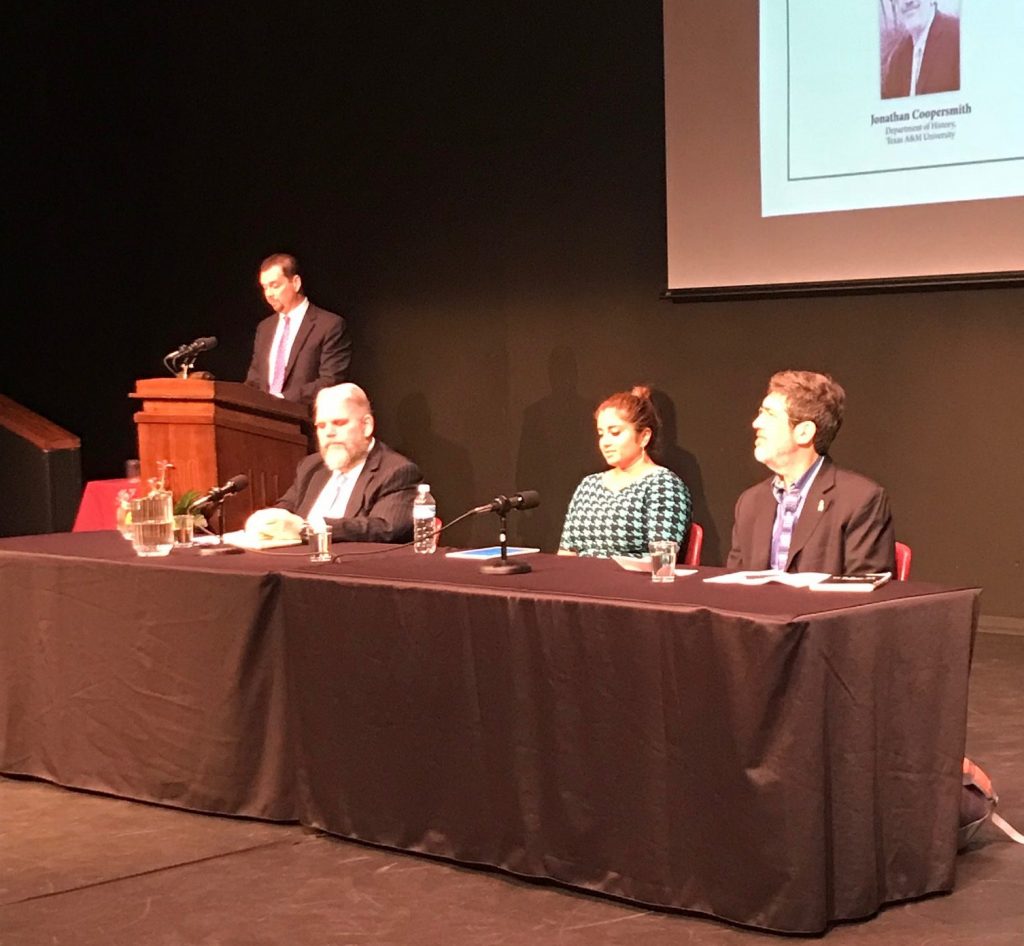2018 Fallon-Marshall Lecture
The 2018 Fallon-Marshall Lecture, titled No More Hidden Figures: Race, Ethnicity, and the Early Days of the Space Program, was held on Monday, April 2, at 4 p.m., in the Rudder Forum.

by Heather Rodriguez ’04
The 2018 Fallon-Marshall Lecture, titled No More Hidden Figures: Race, Ethnicity, and the Early Days of the Space Program, was held on Monday, April 2, at 4 p.m., in the Rudder Forum. Whereas previous years operated as a traditional lecture, this year’s presentation consisted of a panel discussion of three experts and followed by questions from the audience.
The lecture was the final event to cap off this year’s “Hidden Figures” theme.
“Since 1994, the Fallon-Marshall Lecture Series has provided a public opportunity to showcase the exciting scholarship and creativity within the College of Liberal Arts by its faculty,” said history department’s Carlos Blanton, who served as the moderator. “In an increasingly complicated world, where technology has created a sense of crisis in the production and dissemination of knowledge, the College of Liberal Arts’ mission to train students for a lifetime of learning is ever more important.”
Blanton then yielded the floor to the panel, which included: Steven Moss, from the Department of English at Texas State Technical College, who focused on NASA’s early history regarding race; Rumya S. Putcha from the Department of Performance Studies, who discussed her personal history as the daughter of NASA researchers; and Jonathan Coopersmith from the Department of History, who remarked on archiving the history of space travel.
A reception followed the presentation and Q&A session.
The Fallon-Marshall Lecture was established by philanthropist Mary Marshall, who named the lecture for her close friend and former dean of the College of Liberal Arts, Daniel Fallon. Upon Marshall’s death, the college renamed the lecture series the Fallon-Marshall Lecture.
